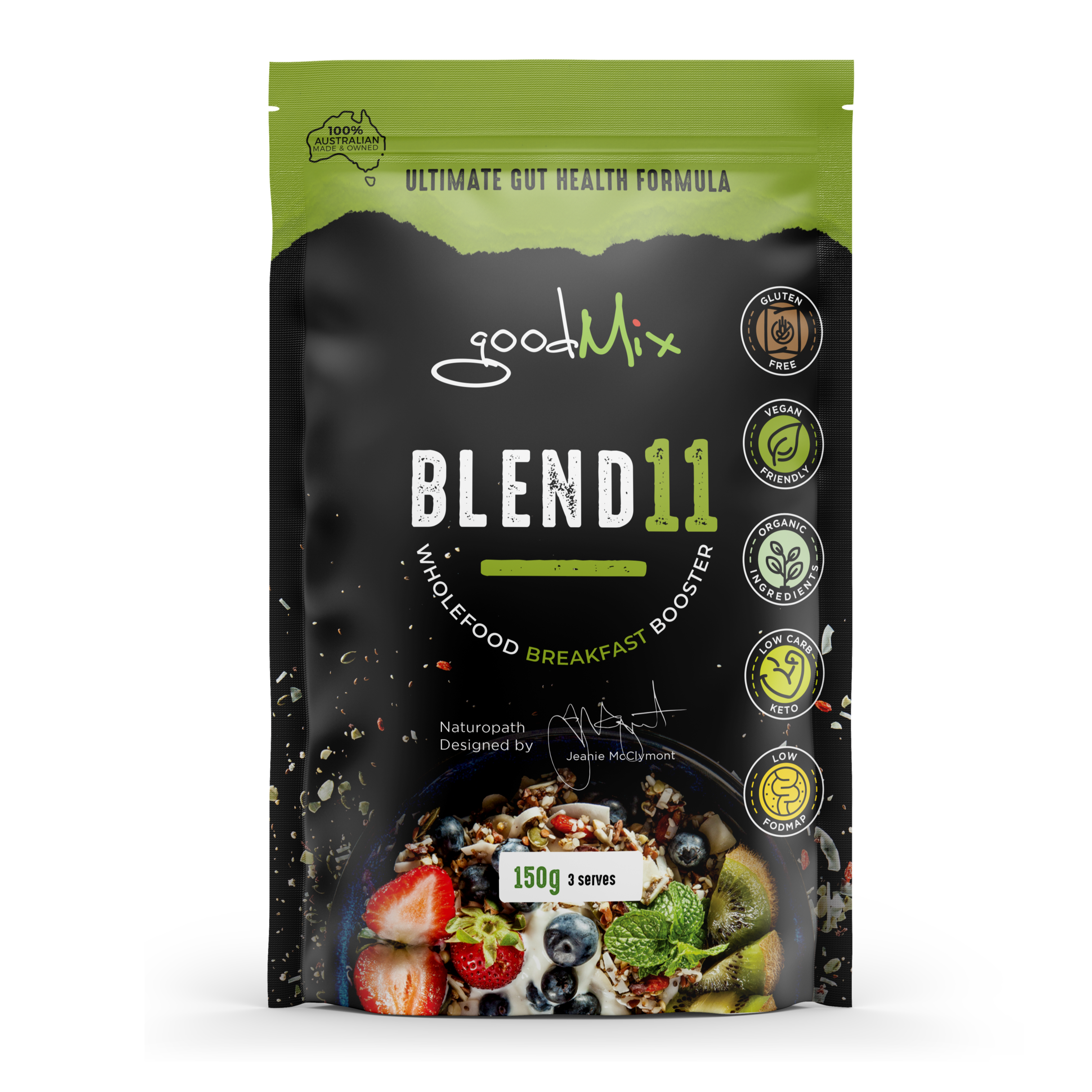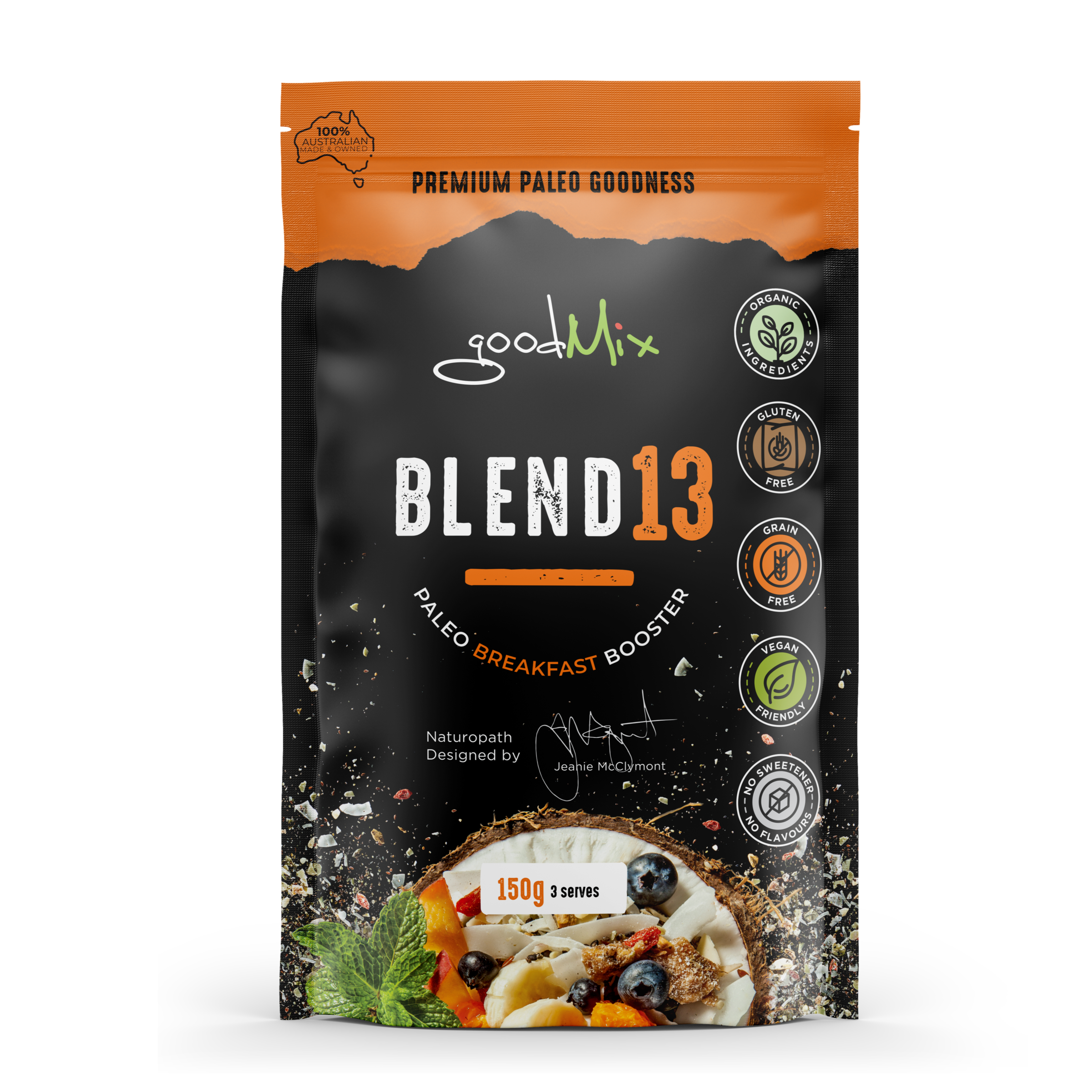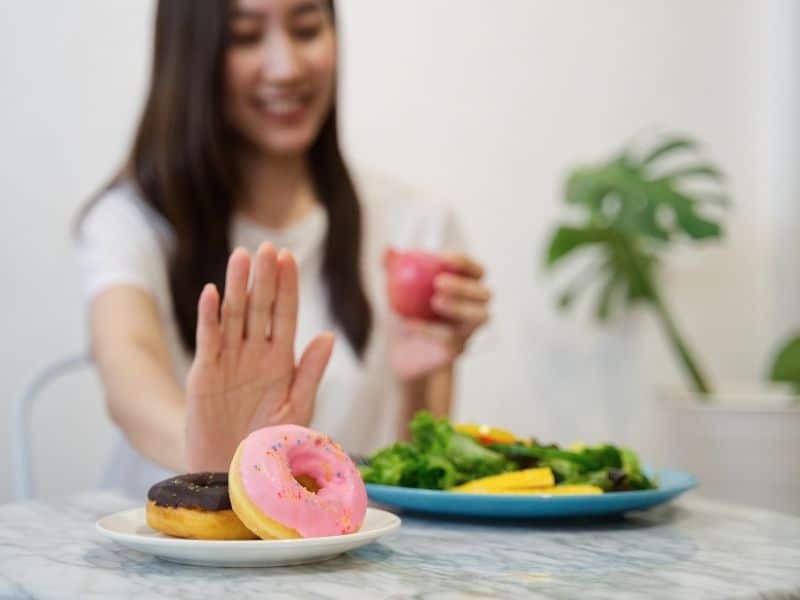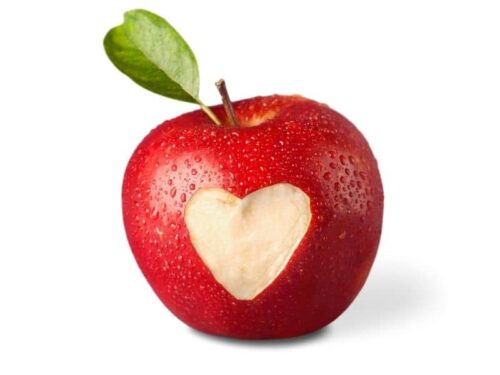
IBD Awareness Week - Can You Use Blend11 for IBD?
This is a question we often get at markets and the answer is a resounding yes (with some care)! IBD stands for ‘inflammatory bowel disease’, which is different from the similar-sounding IBS in that there is inflammation detectable upon investigation and it can be much more serious if left untreated and can require radical surgery. The 2 most common IBD’s are Crohn’s Disease & Ulcerative Colitis.
HOW?
I always recommend that during a flare is NOT the time to introduce anything new and fibrous. I feel it’s best to keep digestive demands low when the system is already dealing with a lot and adding extra fibre into the diet at this point will create more fermentation, more peristaltic contraction and probably more pain. But - if the IBD is in a relatively stable place, here’s what to do:
- introduce just a small amount of Blend11 daily (most people are fine to go straight onto a 50g dose, but with IBD, use your judgement / intuition to see if that’s right for you, if super-sensitive to change, start on 20g & move up from there if well tolerated.
With IBD, it’s best to use Blend11 soaked / activated and then blended into a smoothie (with Greens + Aloe preferably, if game to try!) Try our Protein Punch Green Smoothie or Superfood Smoothie.
Soaking overnight will soften the tough outer layer of the seeds and blending will chop them all up, providing a greater surface area for microbes to access. It also means the seeds are well hydrated, so they won’t be sucking moisture from your system on the way through. The smoothie / blending part is especially recommended if there’s been multiple surgeries, scar tissue / adhesions etc.
WHY?
Aside from much anecdotal feedback telling us it helps, the CSIRO report revealed that Blend11 was well fermented by gut bacteria and supported butyrate production throughout the length of the colon in an in vitro fermentation trial, outperforming both psyllium and cellulose. Researchers believe that further investigation is warranted. The blend is a natural, wholefood addition that can easily be incorporated into a daily smoothie etc, without concern re medication interactions or unwanted side effects.
Being Monash University Low FODMAP certified means that it can be safely used, as a well tolerated and highly nutritious fibre source when following this diet (now known to be helpful in IBD symptom control).
Take a read: Is a low FODMAP diet beneficial for patients with inflammatory bowel disease? A meta-analysis and systematic review
As IBD can be a contributing factor to unwanted weightloss and nutrient deficiency, it’s great if fibre can also support with balanced nutrition as well. Gut microbial diversity is known to be lacking in IBD and diverse, fermentable fibre is super-important to help improve that gut ecosystem and therefore gut lining.
You just need to take a read of the reviews on our website and on Facebook to see how it is helping many people.
BUTYRATE DEEP DIVE:
Butyrate is a highly beneficial substance produced in the colon when certain gut microbes ferment certain types of fibre. It’s not easy to obtain directly through diet (small amounts only), but by eating the right foods we can make sure our gut microbiome is getting plenty of the food it needs to support butyrate production. We can literally turn our gut into an ‘anti-inflammatory factory’ just by changing our diet! Butyrate is the main substance our body uses to repair colonocytes (the cells lining the colon). It’s also important for many other things - see some research below if you’re a bit of a gut nerd!
https://www.ncbi.nlm.nih.gov/pmc/articles/PMC4027835/
Butyrate & IBS
https://academic.oup.com/advances/article/10/4/576/5476417
Fibre & SCFA production
https://mbio.asm.org/content/10/1/e02566-18
Gut Microbiota, Fermentable Fibre & SCFA’s.
PMC4923077
Bifidobacteria and Butyrate-Producing Bacteria: Importance and Strategies for Their Stimulation in the Human Gut
s41598-017-11734-8
Butyrate-producing bacteria supplemented in vitro to Crohn’s disease patient microbiota increased butyrate production and enhanced intestinal epithelial barrier integrity
https://bmcgastroenterol.biomedcentral.com/articles/10.1186/s12876-016-0446-z
Faecal SFCA’s - a Diagnostic Biomarker for IBS.
https://www.ncbi.nlm.nih.gov/pmc/articles/PMC5715108/
Colonic Butyrate-Producing Communities in Humans: an Overview Using Omics Data
https://www.ncbi.nlm.nih.gov/pmc/articles/PMC5390821/#!po=0.735294
Dietary Fibre, Prebiotics & the Microbiota.
e00889-14.full.pdf
Revealing the Bacterial Butyrate Synthesis Pathways by Analyzing (Meta)genomic Data
https://www.karger.com/Article/FullText/477386
Resistant Starch Regulates Gut Microbiota: Structure, Biochemistry and Cell Signalling
https://www.nature.com/articles/mi200879
Crossing barriers: Infections of the Lung & Gut.
https://www.hindawi.com/journals/jdr/2016/6014631/
Diabetes, Gut Microbiome, Butyrate & Tuberculosis Susceptability.
https://link.springer.com/article/10.1186/s12944-019-1167-4
Diabetes, Gut Microbiota & Flaxseed oil.
https://www.frontiersin.org/articles/10.3389/fimmu.2018.01832/full
The Brain, the Microbiome & Ageing.
PMC6361737
Gut microbiome, Butyrate & Lung Inflammation.
https://www.ncbi.nlm.nih.gov/pmc/articles/PMC1374147/
Gut Microbiome, Butyrate & Bowel Cancer Prevention.
https://www.ncbi.nlm.nih.gov/pmc/articles/PMC5707675/
Non-coeliac Gluten / Wheat Sensitivity.
https://www.nature.com/articles/s41598-019-56684-5
Butyrate & Obesity / Weightloss.
https://www.frontiersin.org/articles/10.3389/fendo.2020.00025/full
The Role of Short Chain Fatty Acids From Gut Microbiota in Gut-Brain Communication.
https://www.genengnews.com/news/gut-microbiome-donations-from-the-old-invigorate-the-young/
The Gut Microbiome & Ageing
http://www.braincirculation.org/article.asp?issn=2394-8108;year=2019;volume=5;issue=3;spage=124;epage=129;aulast=Heyck
Gut Microbiome & Memory.
Some other gut healing foods & supplements to include in the IBD diet:
- diverse, fermentable fibre (Low FODMAP in a flare / if sensitive)
- oily fish / fish oil
- bone broth
- glutamine rich foods, or in supplement form-resistant starch-mucilage-veggies (watch FODMAP’s in a flare)
- slippery elm
- zinc (esp zinc carnoosine
Here’s an easy recipe that includes oily fish, seeds & resistant starch (I normally share it for those wanting to improve calcium intake, but it’s also great for an easy, nutrient dense IBD meal):
Fish, Seeds, Greens & Rice:
- 2x onions, finely chopped
- 3 cloves of garlic, crushed *(USE only garlic oil & shallots for Low FODMAP)
- Chunk of ginger, grated or chopped finely (1st joint of thumb size or to taste)
- 1/2 teaspoon of black pepper, or to taste
- 2 tablespoons of Olive oil, for frying
- Spinach or kale leaves, finely chopped, 2 handfuls
- Sesame Seeds 1/2 cup (or more if you like)
- Sunflower seeds 1/2 cup (or a mix of pepitas & sunflower seeds) use soaked seeds for sensitive tummies and maximum nutrient absorption
- Sardines (in water) 2 tins, mashed (or salmon, with bones, mashed)
- Brown or white rice (cooked then cooled) 6 cups (when cooked)
Method:
- Fry onion, garlic, ginger & pepper in olive oil until nicely browned, adding sesame towards the end.
- Throw in the chopped greens, stirring until they wilt a little.
- Add the sardines or salmon, the rice, & then add tamari to taste.
- Stir through some shallot greens if you are using instead of garlic & onion. Serve as is or with some salad.
Foods that should generally be avoided in IBD, at least worth a good 8 week trial with strict avoidance:
- gluten
- dairy
- refined carbs & sugars
- trans fats
- excess protein (a high fat / protein diet should also be high in fibre for gut health)
Other things to avoid:
- cigarettes - a known risk factor for Crohn’s disease, one type of IBD. There’s no good reason to still be smoking these days- it’s an expensive, air-polluting, stinky addiction…that you can get help to kick!
- alcohol - it is a GIT irritant. And has a negative impact on gut bacterial balance. Use mindfully or better still not at all.
- caffeine - another GIT irritant, but also has some good bacterial promoting polyphenols…don’t go overboard, listen to your body, some people can tolerate it but most with IBD are better off without it.
- drugs - recreational or pharmaceutical, as a general rule, bacteria don’t like chemicals…so try to avoid ingesting them wherever possible.
- stress - this is a BIG one. We all face it, it’s how you deal with it, how you interpret what life throws at you!
- fast & junk food - full of trans fats, refined carbs, sugars and hardly any nutrition.




